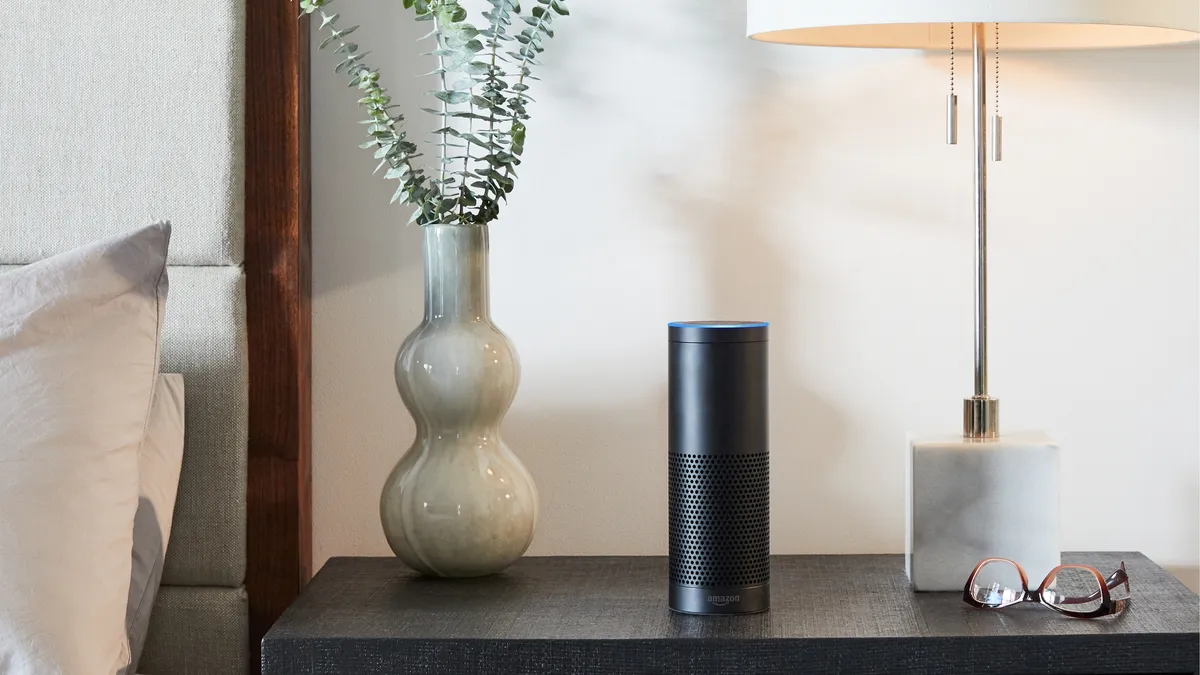Dive Brief:
-
Despite already claiming 68% of the voice-activated smart speaker market, Amazon aggressively priced its Echo and Echo Dot speakers this past weekend to drive more sales during the biggest holiday shopping weekend of the year, according to CNBC.
-
Google, meanwhile, cut the regular price on its Google Home Mini by $20, to $29, and Google’s retail partners, including Best Buy, Williams-Sonoma and Office Depot, were offering similar deals through their own channels.
-
Separately, Amazon Web Services announced a free development tool called Amazon Sumerian that enables developers to create and host virtual reality, augmented reality and 3D apps quickly for mobile devices and other products, according to a TechCrunch report.
Dive Insight:
The CNBC report noted that Amazon heavily advertised on its own site that it was offering the Echo for $79.99 and the Echo Dot for $29.99, a $20 discount in both cases. The Echo-heavy promotion is reminiscent of Amazon's Prime Day in July, which saw a massive amount of sales for the device.
Amazon currently controls around 70% of the $4 billion market for voice-activated smart speakers — an impressive amount for a market that is seeing an influx of new competition from Google, Apple and several other companies. This move is likely unmotivated by market share numbers or even sales revenue, though. More likely, the e-commerce giant is thinking about ubiquity — not only getting more devices into the homes of new customers, but also getting even more Echo devices into the homes of customers who already have them, the better to increase the chances that a user will always be within earshot of an Echo device, a condition which could power an explosion in voice search traffic.
As CNBC pointed out, voice searches conducted through the Echo devices produce results that favor Amazon. For example, Ban Americas told CNBC that 17% of the time an Alexa voice search for an item from Amazon’s private label listing first recommends Amazon’s own private-label products, even though Amazon’s own label products account for only 2% of products sold. This becomes even more problematic when you consider the brick-and-mortar stores selling Amazon devices — they might make money off of the speaker, but any further voice-activated shopping will likely benefit Amazon, not the retailer.
The ubiquity of Echo devices also creates a vast playing field for the rapidly increasing number of Alexa applications being created by developers. Amazon has taken several actions in the past year to drive more app development and grow the ecosystem around Echo and Alexa, hiring hundreds of engineers to focus on Alexa-specific tasks in September and allowing developers to place their Alexa skills behind a subscription paywall.
Meanwhile, Amazon has not been nearly so dominant a force in the suddenly hot field of VR and AR apps. The development of Sumerian might not be a game-changer in a sector that already has Apple’s ARkit platform, which has triggered a host of AR apps, but it at least gives Amazon a bigger stake in the rise of VR and AR as more retailers, including Amazon, are turning to these apps.















